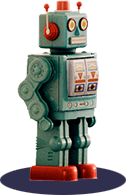How do children with GHD see themselves?
We know that overall health and wellness is important to caregivers and their families. Here are some of the questions we’ve heard.
[She’s] always said ‘I’m very small. Why are they so much bigger than me?’ I think that kept her from really interacting with kids her age.
Karyn, mother of a 6-year-old daughter with growth hormone deficiency (GHD)

Living with GHD
Living with GHD is a personal and individual experience. As your child grows and matures, their ability to understand their treatment and condition will change.
How do YOU feel about GHD?

GHD doesn’t just affect the children that are diagnosed with it. It can have a ripple effect that impacts both children and their families.
It’s perfectly normal to feel anxious about the role you play in your child’s GHD journey and the questions that may come up along the way. However, there are several other factors surrounding GHD that can become overwhelming.
You may feel some concerns about:
- Stigma around GHD
- Your child fitting in with their peers and their social and emotional health
- Feelings of sadness over the need for treatment and worry for your child
- Properly injecting your child
- Causing pain from injections
You’re doing everything you can to help your child through their GHD journey, including getting them the treatment they need!
Though you might feel a lack of control in your child’s diagnosis and treatment, there are choices you can make about how to manage your child’s GHD.
Below are some techniques you can turn to if you begin to feel overwhelmed:
- Create your own care team. This can include friends of family, nurses at your doctor’s office, and members of the GHD community
- Keep a journal! Add any questions you or your child may have. Be sure to bring it with you to your child’s appointments
- Ask for help! You know your limits, so don’t hesitate to get help when you need it
And most importantly, give yourself a time-out when you need it!
READ MORE

Your child’s emotional health
Stress-free tips
You and your child’s emotional health is an important part of your GHD wellness. Shorter children often have emotional and social problems because of their height. You may see your child upset, becoming more anxious, or acting differently. Knowing how to identify these behaviors can help you and your child find solutions to their stress.
What are some common stress-related behaviors?
- Anxiety
- Sadness
- Feelings of not fitting in
- Immaturity
- Acting out
- Seeking social acceptance
These behaviors can be caused by a number of different reasons. For example, your child may be acting out in class—or taking on the role of the “class clown”—because they are trying to make up for their shorter height. Or, they may begin to act younger or more immature because others are treating them according to their height, not their age.
Parents and caregivers are sometimes better able to recognize these behaviors in their child. When you notice something out of the ordinary, don’t be afraid to address the problem.
Talking to your child is the first step to bettering their emotional well-being. They may not want to talk about their struggles yet. Or, they may not be aware that they are acting differently. Let them know that they can talk to you about anything. Don’t hesitate to reach out to outside support, like teachers or school counselors.
How does GHD affect my family?
While only one child in your family may be on growth hormone (GH) treatment, the emotional well-being of their sibling(s) can also be affected. When dealing with an illness like GHD, your child’s siblings may experience stress, anxiety, and depression as a result. When they see the adults in their life worried or stressed, they may attempt to find ways to help. It’s important to be aware of your entire family’s emotional health—and to support one another during your GHD journey.
READ MORE

Dealing with Stress
Children can often pick up on their parents’ emotions, especially when anxious or upset. Here are some ways to limit stress for everyone in your home.
- Maintain a routine—outside of GHD treatment. Find ways to relax with your family, like reading a book together before bed
- Keep your sense of humor. Laughing is one of the best ways to stay worry-free
- Allow your child and their siblings to enjoy being kids, while setting boundaries. GHD doesn’t have to define how they have fun
- Watch for unusual behaviors. Get the support you need to help when your child seems stressed
READ MORE

Have more questions? We have answers!
We want to hear from you! Come back for tips on how to manage GHD from others who are in the know and for additional information you need. For now, sign up to hear about information related to new treatments, updates to our website, and more!
READ MORE
Looking for a treatment option?
Talk to your doctor and see if this treatment option for children with GHD is right for you.


